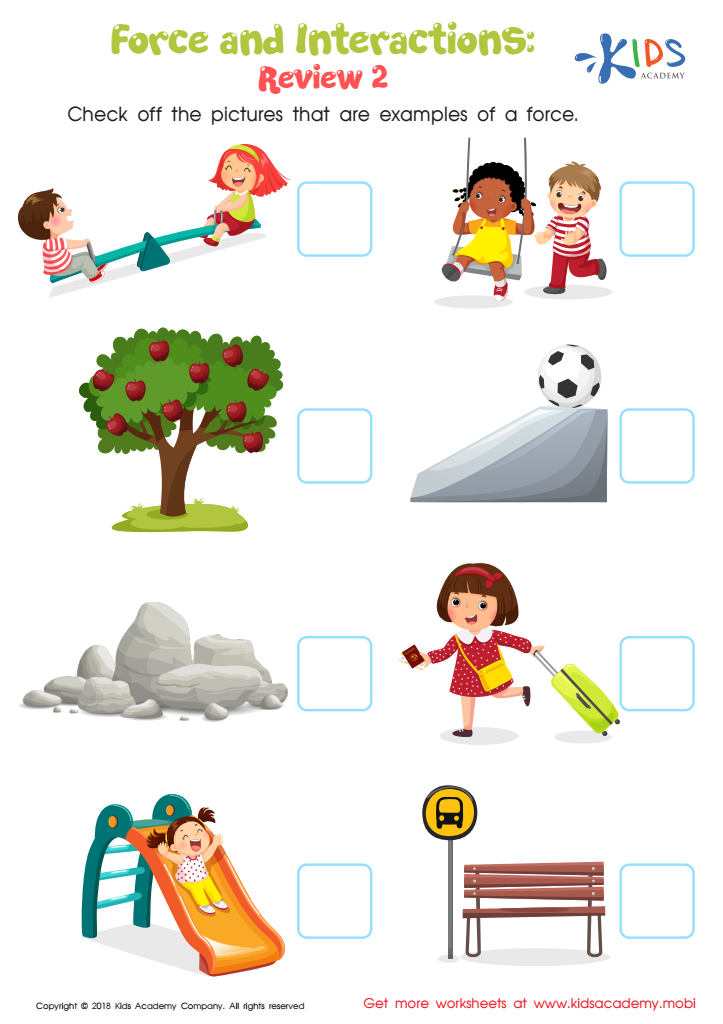Geometry practice Worksheets for Kids
1 filtered results
-
From - To


Force and Interactions: Review 2 Worksheet
Question/Answer
What does the Geometry practice skill mean when it comes to Kindergarten Physical Science learning?
The Geometry practice skill in Kindergarten Physical Science involves recognizing and naming simple shapes (such as circles, squares, and triangles), understanding basic spatial relationships, and beginning to comprehend how objects can be combined or separated. This foundational skill helps children start to grasp the physical properties and organization of the world around them.
Why is the Geometry practice skill important for Kindergarten students?
The Geometry practice skill is important for Kindergarten students because it lays the foundation for spatial reasoning, critical for understanding the world around them. It helps develop their ability to recognize, compare, and manipulate shapes, fostering problem-solving skills, enhancing visualization capabilities, and preparing them for more complex mathematical concepts in the future.
How does the mastery of the Geometry practice skill affect a student's performance at an early age?
Mastery of Geometry at an early age enhances a student's spatial reasoning, problem-solving skills, and logical thinking. It lays a solid foundation for understanding more complex mathematical concepts, improves academic performance in mathematics, and fosters a positive attitude towards learning STEM subjects. Early exposure to geometry can also boost creativity and innovation in young learners.
 Assign to the classroom
Assign to the classroom











